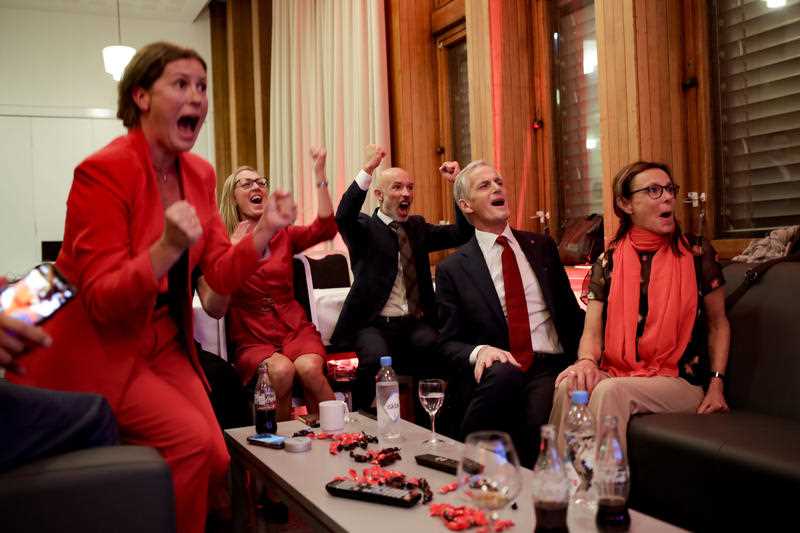Norway’s centre-left opposition parties are on course to win the country’s parliamentary election, in which debate has centred on economic inequality and climate change, projections showed as voting ended.
Labour Party leader Jonas Gahr Stoere is widely expected to form the next government, either ruling in a minority or together with several other parties, thus bringing to a close Conservative Prime Minister Erna Solberg’s eight years in power.
But to form a viable cabinet, Stoere must persuade potential centre-left partners to compromise on policies ranging from oil and private ownership to Norway’s relations with the European Union.
Norway’s status as a major oil and gas producer has been at the heart of the campaign, although a transition away from petroleum – and the jobs it creates – is likely to be a gradual one despite progress by pro-environment parties.
“I believe that calling time on our oil and gas industry is the wrong industrial policy and the wrong climate policy,” Stoere told reporters on Sunday after casting his ballot on the first day of the election.
“There will be some tax increases for example and there will be a different set of priorities … but the total size of the public budget will not be substantially different from if the current government would remain in place,” said DNB Markets Chief Economist Kjersti Haugland.
Voting ended on Monday. With over 65 per cent of the votes counted, Labour and four other centre-left parties could swing to a combined majority of 100 seats, up from 81 currently, the Directorate of Elections projected.
A minimum of 85 seats is required to win a majority in the 169-seat parliament.
If the projections prove correct, Stoere could form a majority of Labour, the Centre Party and the Socialist Left, on track for a combined 89 seats, and avoid having to work with the Marxist Red Party or the anti-oil Greens.
Getting the rural-based Centre Party and the mostly urban Socialists to govern together could be difficult, however, as the two take different views on issues from oil to taxes.
Ruling in a minority could also be an option for Labour. Stoere says his government would focus on cutting CO2 emissions in line with the 2015 Paris Agreement, but has rejected any ultimatum over energy policy.
If he wins, Stoere has pledged to address inequality by cutting taxes for low- and middle-income families and hiking rates for the rich.
AAP



